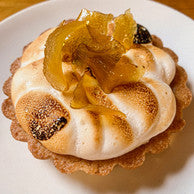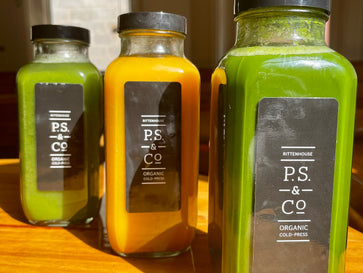Coconuts seem to pop up everywhere these days. In yogurts, milks, granolas, plant-based cheeses and butters, oils, skincare, and so much more. But the use of coconuts in cuisine and from a medical standpoint is not at all new. Ayurvedic Medicine, an ancient Indian medicinal system that focuses on a holistic approach to health, shows documentation of medicinal coconut use as far back as 4,000 years ago. The coconut palm (Cocos nucifera), one of the most important crops across the tropics and subtropics, was first used worldwide as oil when Europeans arrived in the Pacific Islands in the 19th century. It became the first vegetable oil used in world trade. Coconuts have many different uses including being a portable ultra-hydrating water fountain, containing calorie-dense/nutrient-rich coconut “meat,” can be made into oils, and the fibrous exterior can be spun into ropes and made into other functional items such as outdoor flower planters.
Coconut Meat
The coconut tree is grown in more than 93 countries and produces approximately 57,510 million coconuts annually. Containing various bioactive components, coconuts have risen in popularity for many uses on the market. Studies have shown that the endocarp (the coconut meat) and the coconut water showed strong antioxidant activity. The fiber has shown antibacterial, anti-inflammatory, and antiparasitic benefits. Supporting sustainable agriculture motives, harvesting coconuts has been known to assist with societal, environmental, and economical growth. Much health research on the benefits of coconuts focuses on cardiovascular health. However, Alzheimer’s Disease, a progressive neurodegenerative disease is said to be positively impacted by the consumption of coconuts as well. Coconut meat can be shredded or made into chips and can be used in baked goods, atop yogurt, chia pudding, or acai bowls. It’s used in curries, soups, ice cream, and rice dishes. It can even be smoked and turned into a “bacon” for a flavor burst in your next B.L.T.


Coconut Oil
Virgin coconut oil is thought to have the highest health benefits among other coconut oils as the processing doesn’t seem to affect the fatty acid profiles. It has greater phenolic compounds and antioxidant properties. The superior method for extracting coconut oil is said to be wet-processing virgin coconut. Coconut oil has been known to exhibit antifungal and antimicrobial properties via the medium-chain fatty acids which help to expel an assortment of lipid-coated bacteria. Medium-chain fatty acids are also more easily digested compared to long chains. Medium chains are also smaller in size which aids a higher cell permeability for immediate energy conversion instead of being stored as fat. Virgin coconut oil contains a high percentage of lauric acid, a middle chain-free fatty acid that can help control the balance and distribution of bacteria in human gut microbiota. Coconut oil is used in a culinary sense as well as in the holistic medical community. Benefits of using coconut oil for cosmetic and hair care purposes are very popular at the moment. The oil can be used to shave with or to soothe the skin post-shave, it can be used as a make-up remover, a cuticle moisturizer, a personal lubricant, and can hydrate brittle hair follicles. The list goes on. Also used in oral care, the Ayurvedic process of swishing coconut oil in the mouth is claimed to promote strong teeth, gums, jaw, and prevent tooth decay.
Coconut Sugar
Coconut sugar has gained recent popularity as a healthier replacement for white or cane sugar varieties. It contains more vitamins, minerals, and antioxidants. Coconut sugar is high in vitamin C and potassium.
Coconut Water
Coconut water is a great way to hydrate naturally. There are zero artificial sweeteners and additives compared to the ingredient lists among most store-bought sports drinks. Coconut water is a rich source of nutrients including essential amino acids, dietary minerals, zinc, iron, manganese, and potassium. Zinc, an essential trace element, helps to boost immune health, metabolism function, and is crucial for gene expression (the process by which a gene gets turned on in a cell to make RNA and proteins). Iron is a mineral that the body needs for development and growth which helps to boost energy, immunity, and assists in concentration and memory. Manganese assists in bone health and the connective tissues in the body. Potassium, a vital mineral, and electrolyte, plays an important role in the body to help support healthy nerve and muscle function.
Coconut on P.S. & Co.’s Easter Menu



Organic Coconut Water -
Organic Thai young coconut: whole coconut cracked to order
Coconut Oil -
Organic Easter Sugar Cookies - Made with millet flour, sorghum flour, tapioca flour, and superfood icing.
Organic Easter Cupcakes - Assorted vanilla and chocolate varieties topped with superfood icing.
Organic Chocolate Ganache Eggs - filled with chocolate ganache and dipped in house-made chocolate
Coconut Milk + Flour -
Organic Lemon Meringue Tarts - made with cold-pressed lemon juice, coconut milk, coconut flour, rice flour, and more.
PMID: 32328243
PMID: 34009462
PMID: 31665909
PMID: 28462183
PMID: 32183116
https://www.nccih.nih.gov/health/ayurvedic-medicine-in-depth
https://www.cancer.gov/publications/dictionaries/cancer-terms/def/gene-expression





Leave a comment
This site is protected by hCaptcha and the hCaptcha Privacy Policy and Terms of Service apply.